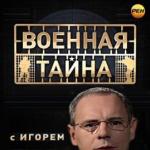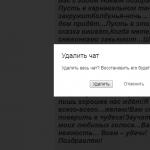Documentary films politics online. How propaganda works on Russian TV: we explain with examples from the TV show Polit, recent episodes on Crimean television
Genre: Military / Weapons / Politics / Technology / Documentary 2020
Konstantin Dushenov about Medvedev’s resignation, Mishustin’s appointment and the president’s message to the Federal Assembly. Why did this happen now?
Genre: Politics / Social / Documentary 2020

When are Russians going to be fined for explosive mixtures like fermented wine? And why are there so many domestic explosions?
All about real prototypes of the most memorable guns from science fiction blockbusters!
Why did the daughter of the murdered General Soleimani predict dark days for the insane Trump? Should we expect a dangerous confrontation?
Forecast 2020: what do military analysts say? Expect war or peace? Will the dollar collapse? And what will happen to the ruble?
Genre: Politics / Documentary 2018

The devastating war in Syria, the crisis in Yemen and the ongoing chaos in Iraq. The violence in the Middle East is portrayed as part of an ancient battle between the Sunni and Shiite sects of Islam. The documentary reveals how this dangerous feud plunged the Middle East into violence that reached unimaginable levels. The film features exclusive footage filmed in Iran, Saudi Arabia, Yemen, Iraq, Pakistan, Syria and Lebanon.
Genre: Business and Finance / Politics

On December 21, Donald Trump signed a package of sanctions against Nord Stream 2, which was 99% completed. Why are the Americans trying to prevent the launch of Russia's most important energy project? What are the options for circumventing American sanctions? And what strategic decision will Moscow make in the near future? The Swiss Allseas campaign, whose ships laid the pipeline along the bottom of the Baltic Sea, has already demanded clarification from the US administration. But will Europeans have enough political will to complete the project and not be afraid of American sanctions? In the global energy market, the United States is playing in two directions at once. Experts are confident that the maximum plan for the Americans is to disrupt all the most intensive supplies of Russian gas on the European continent. Who really won and who lost from the new gas contract between Russia and Ukraine? And how does the US plan to capture the European gas market?
Exclusive! Has the hero of the military conflict with Georgia, who was considered dead, been found? First interview after the incident!
Flamethrower weapons that are hard to imagine! What are the Buratino and Solntsepek complexes capable of?
Kremlin psychics. Sensational revelations from a participant in a terrible case!
Why do they snitch on neighbors and even relatives in the States? And why don't Americans feel sorry for their wives?
Genre: Politics

Genre: Politics
All these countries gained independence after the collapse of the Soviet Union and the socialist system. What national interests did they have to sacrifice for the sake of friendship with America, what consequences has this already led to and, perhaps, will lead to in the future? This is discussed in the series of documentaries “Limited Sovereignty”.
Genre: Military / Politics / Social
What motorcycles did the Red Army fight on in World War II? And what is real extreme?
Why do Western stars work for private cooperatives of Russian civil servants? And what was their fate in the end?
Why do people play with death and how does such extreme behavior usually end?
How were military telepaths trained in the USSR and the USA?
Each of the major television channels broadcasts several talk shows where social and political topics are discussed. On “Russia 1” he hosts the programs “Duel” and “Evening with Vladimir Solovyov”, and the talk show “60 Minutes” with Olga Skabeeva and Evgeny Popov is also broadcast there. The flagship of the socio-political block of Channel One was the talk show “First Studio” with Artem Sheinin. He, along with Ekaterina Strizhenova and Anatoly Kuzichev, hosts the daytime talk show “Time will tell.” NTV airs “Meeting Place” with Andrei Norkin and Olga Belova during the day, and “The Right to Voice” with Roman Babayan is shown on the TV Center channel in the evenings, as well as “The Right to Know” with Dmitry Kulikov.
It is enough to look at these and other political shows to notice: the same people wander from program to program. Moreover, some of them act as experts on almost all issues. The structure of the show, themes, and techniques are also repeated. Afisha Daily decided to look into these and other features of discussions on Russian political talk shows.
Issue dated March 27, 2017. Topic: "At the crime scene." The program is dedicated to Ukraine. Presenter Artem Sheinin appeals to the reaction to the murder of Voronenkov by US Senator John McCain. After this, a discussion ensues.
Leonid Smekhov
Business coach, teacher of public speaking for an MBA at IBDA RANEPA, author of the book “Popular Rhetoric”
Thanks to the image of the presenter, a feeling is created: the program is being hosted by a “man of the people”, a kind of boorish and rude native of the proletarian environment. Sheinin, in rude terms, devalues McCain as a speaker, citing the following argument: “I understand that McCain spent a long time in a cage in Vietnam, where he was regularly beaten.” This is labeling as “not a completely mentally healthy person.”
One of the program participants, Igor Drandin, agrees with McCain’s words about Russia’s involvement in the murder, recalling the example of Alexei Navalny: “As soon as you talk about Putin and corruption, you are immediately sent to jail.” Other speakers begin to interrupt him, arguing that in America Navalny would be imprisoned for 15 years for rallies. This is a manipulative, unverifiable statement - a trick called “imposed consequence”, when the chain of reasoning is hidden and the emphasis is placed on the conclusion. The presenter labels the interlocutor as “you now sound like McCain,” ignores counter questions and uses an authoritarian trick - repeating the same phrase until the interlocutor gets tired and falls silent. The presenter also uses other tools to control the dialogue: gives commands to speakers; lowers the rate of speech and increases emphasis on words, which makes his speech more significant; gets personal, directly accusing his opponent of lying.
When Drandin is already off balance, trying to shout down his opponents, he looks like a capricious child. At this point, the rest of the program participants begin to behave like educators who are trying to calm him down from the position of an “adult.”
Employee of a socio-political talk show of one of the central channels
The expert wishes to remain anonymous
Opposition speakers are the biggest problem for such talk shows. The leadership wants new faces, but at the same time they need to be absolutely sure that this very “liberal-lite” will not say too much. Especially if the program is broadcast live. Of course, there is a stop list, and it is periodically supplemented, in particular, for the reason “I’m tired of it, there’s too much on the air.” These “lite liberals” can be counted on one hand. They are all paid, that is, it is their job to go on TV channels and portray enemies in a mode that is safe for the channel.
Artem Sheinin is a strange character in general. He was still tolerable when he was the shadow head of the channel's political broadcasting. But after Peter Tolstoy left for the State Duma, Sheinin apparently decided to demonstrate the height of professionalism in running political talk shows. Well, in his opinion, of course. This style of broadcasting is generally Sheinin’s style of communication. The appearance of Anatoly Kuzichev as a co-host in the show “Time will Tell”, in general, fits into the concept. Under the leadership of Sheinin himself, they were looking for someone who would resemble Sheinin without overshadowing him.
Issue dated February 21, 2017. Topic: Ukrainian President Petro Poroshenko called on Europe to tighten sanctions against Russia because it recognized the documents of the DPR and LPR. Conversation with Vyacheslav Kovtun, who is introduced as a Ukrainian political scientist.
Leonid Smekhov
The presenter sets in advance the framework within which viewers will perceive the video with Poroshenko. Immediately after watching, he once again points out the incompatibility of Poroshenko’s statements with his status and religious beliefs. It is important that the statement of the President of Ukraine is taken out of context: neither the situation, nor the identity of the interlocutor, nor the prerequisites are known. It is also impossible to say for sure that Poroshenko uttered the insult - it comes from behind the scenes. Kovtun is trying to clumsily justify Poroshenko, instead of shifting the focus or even transferring the game to the enemy’s field (his favorite speech technique is “he’s a fool”). He does this belatedly, recalling the statements of Foreign Minister Sergei Lavrov during a press conference with his colleague from Saudi Arabia.
“Evening with Vladimir Solovyov” on “Russia 1”
Issue dated May 16, 2017. Topic of the program: “Banning social networks in Ukraine. Medicine in Russia. Cultural extremism." Vladimir Solovyov and guests again oppose the Ukrainian political scientist Vyacheslav Kovtun.
Leonid Smekhov
Soloviev acts in the usual image of a cynic intellectual, increasing the persuasiveness of his statements by listing names and facts. He responds to Kovtun with manipulative tricks: he puts on a label, reducing the authority of his interlocutor; sometimes he appeals to other people - Shoigu, Zyuganov and Zhirinovsky and their expected reaction; then moves on to direct accusations. In the future, even antics are used against Kovtun in order to devalue his words and seize the initiative. He is eventually hammered again with a series of accusations. Under them he temporarily drowns.
TV show employee
The TV show really got into the themes of Ukraine and Poroshenko. This formulation of the question has long unnerved the viewer, because it resembles pouring from empty to empty. When the Ministry of Defense TV channel “Zvezda” prioritizes foreign policy topics, this is at least somehow understandable. In the case of the first button and “Russia” - no.
Topics for talk shows (especially daily ones) are formed from the current agenda. Editors regularly offer interesting moves and twists, but periodically this ends with the topic being canceled and the command: “Making Ukraine.” If some time ago this was interpreted as “Ukraine-actual”, then at the moment the current is not forged with such frequency. Therefore, the topic, as well as the program, turns out to be nothing.
Issue dated April 6, 2017. Topic: “What do they expect from Russia?” They are discussing “unsubstantiated” accusations from the West of Russian involvement in a chemical attack in Syria. Igor Korotchenko, a member of the Public Council under the Ministry of Defense, opposes the American journalist Michael Bohm.
Leonid Smekhov
Korotchenko’s statement is a typical sifting of facts: he omits something quite significant, but, on the contrary, brings something to the fore. He gives additional persuasiveness to his statement with a low tempo of speech, harsh vocal delivery, and emphasis. When Bom tries to interrupt Korotchenko, he immediately begins to insult him, as if he were insulting a criminal who has already been exposed, but is still trying to interfere with the progress of the investigation. In the end, everything negative is attached personally to Bom, as usually happens on such programs.
Here it is worth noting the imbalance of volume as an additional means of influencing the listener: in this dialogue, we hear Korotchenko’s remarks much more clearly and better than Bohm’s remarks. But could it be the other way around? The American's opinion is secondary here.
TV show employee
With Bom, as with Kovtun, the situation is the same as with the paid oppositionists. It’s just their job to go on talk shows and pretend to be enemies (NTV dedicated a series of programs to foreign stars of Russian television: here it is. - Note ed.). As for fees, Bohm, for example, two years ago received fifteen thousand rubles per broadcast. Kovtun was initially paid five, but soon the fee was increased to ten.
"First Studio" on Channel One
Issue dated March 29, 2017. Topic: “Protests: how society should react to them.” The guests talk about why young people came out to protest on March 26.
Leonid Smekhov
Putin recognized the collapse of the USSR as the greatest geopolitical catastrophe of the twentieth century, which means that this interpretation of the events of 1991 can be considered the official and main one. Gennady Zyuganov, for obvious reasons, develops this topic, linking events in Ukraine with it and using recognizable Soviet propaganda cliches: “orange provocateurs”, “under far-fetched slogans” and so on. But this does not sound archaic: modern media often use tools of speech influence from the past.
Navalny’s image is instantly transformed into that of an enemy thanks to the label “Führer.” In general, the event under discussion is presented by Zyuganov as something illegal, dangerous for the country and inexperienced youth who do not understand anything. But, thank God, there are law enforcement agencies that protect the country and prevent it from falling apart. They, according to the leader of the Communist Party of the Russian Federation, are smarter than the protesters.
Next speaker is Olga Timofeeva (member of the Russian Federation Council Committee on International Affairs. - Note ed.) develops the image of a clueless young Russian who can be drawn into a dangerous game by conscription. There is an appeal to a probable future, the topic under discussion is inflated to a global scale, and the organizers of the rallies immediately become enemies of the country, encroaching on its future. Sergei Ivanenko (member of the Yabloko party) bursting into dialogue with pressing questions and claims. Note ed.) the presenter neutralizes with the following argument: “Are you a democrat? You say that you respect the laws? So respect the laws of our studio.” The presenter says this with a disdainful tone, which weakens Ivanenko’s statement and oratorical image.
TV show employee
Was the choice of topic influenced by the fact that the central channels were criticized on the Internet for hushing up the protest action? Usually, criticism on the Internet is responded to selectively; there is no system as such. It was rather the gravity of the presenter Sheinin. It cannot be said that program management is constantly offended by criticism of the Internet and they run to give “our answer to Chamberlain.”
The presenter appeals to the words of director Alexander Sokurov, without saying a word that this phrase was taken, and also without mentioning that Sokurov has repeatedly spoken critically about the actions of the Russian authorities.
Leonid Smekhov
The presenter undertakes to claim that on his program a decision is formed on the correct reaction of society to rallies. And again a statement about the lack of understanding and stupidity of young people: if they go to a rally, it means there is wind in their heads.
Look: they managed to involve even such worthy and recognized people as Sokurov. He proposes to divide the protesters into those who cannot be touched under any circumstances, and the rest who can be touched. And now we will prove that everyone needs to be touched. Here are the cute girls in the video. Here they are sitting. But a building is on fire in Odessa. This type of innuendo is called "sandwich". We take a well-known fact - girls at a rally, we take another well-known fact - the burned down trade union house in Odessa, and between them we put an unknown and unverifiable fact: the assertion that these girls also burned the house. The trick is usually convincing.
TV show employee
The system of taking phrases out of context, unfortunately, is constantly practiced. Those who make the program realize that the person whose statement was distorted will never come to the program. And if he wouldn’t go anyway, then his hands are completely untied.
“Time will tell” on Channel One
Issue dated July 21, 2017. Topic: “Why don’t we give birth?” The program about the decline in the birth rate in recent years begins with a discussion of the presenter’s recent vacation in Crimea.
Leonid Smekhov
Sifting through the facts again: we talk about one thing and leave out another. There is an interesting point in the discussion of Crimea: the presenters’ childhood memories of the taste of peaches. Firstly, these memories should evoke the same reaction among the target audience of the program - agreement, warm memories, nostalgia, and at the same time a desire to agree with the position of the presenters. And secondly, these memories are presented with an emphasis on the kinesthetic channel of perception: taste, the sensation of flowing juice from a ripe fruit. This is done so that the viewer’s imagination draws the correct pictures, and does not deal with issues of prices and congestion of the beaches.
The story of the escape to Syria and the return of Moscow State University student Varvara Karaulova has spread not only across Russia, but throughout the whole world. The girl was convicted of attempting to join a terrorist organization and sentenced to four and a half years in prison. In this confessional documentary, Varvara and her parents look back and rethink everything that happened to them.
25 668

"Square of Broken Hopes" Documentary movie
Four years have passed since Ukraine entered Euromaidan. It is still unclear who opened fire on the protesters and who is responsible for the police casualties. The authors tried to find an answer to this question and came to sensational conclusions.
32 458

37 994

"Crimea. Sky of the Motherland." Documentary film about the military pilots
The film is about military pilots who, after the collapse of the USSR, had to make a difficult choice when their regiment, along with Crimea, went to Ukraine. Take the oath to a new country or leave your native airfield to the north, leave your apartments and family? How to fight against former fellow soldiers? Recent events have again forced pilots to think about these questions...
1 114 374

fourth
Channel One presents a unique project by the famous American director Oliver Stone - the documentary film “Putin” - about one of the most influential players on the world political arena.
1 401 149

Putin. Oliver Stone documentary. Part third
The famous American director Oliver Stone talked with Russian President Vladimir Putin for two years. Now Channel One viewers have a unique opportunity to watch the documentary film “Putin”. Watch online on the Channel One website all episodes of Oliver Stone's film about Russian President Vladimir Putin.
1 761 601

Putin. Oliver Stone documentary. Part second
3 241 689

Putin. Oliver Stone documentary. Part first
Channel One presents a four-part documentary film by the famous American director Oliver Stone “Putin”. Watch online on the Channel One website all episodes of Oliver Stone's film about Russian President Vladimir Putin.
75 371
The national television award TEFI for information and analytical broadcasting has exactly two nominations (a program in this genre and its presenter), and the thoroughly political one is forced to compete with its “Sunday Evening” (as it was at TEFI-2016) in the category “Evening talk show "with the shows "Revizorro" and "Let's Get Married" that are very far from politics. In this situation, however, there is nothing extraordinary - and after the update, TEFI has not yet figured out its categories (they change almost every year), and the politicization of domestic television - especially in prime time - leaves much to be desired.
Of course, there is news broadcasting: various “News”, “News”, “Today” and “Events” are broadcast several times a day, followed by final releases on the main events of the day.
But almost everything is clear with the news, they are also subject to separate nominations in TEFI, and their format has remained unchanged almost since Soviet times. In addition, they enjoy constant success with viewers and regularly occupy almost the entire top 10 most popular programs of the week according to Mediascope (formerly TNS Russia), and only Eurovision or The Voice can move them from the first places. Political talk shows are not at the highest places in the ratings, which does not exclude rivalry between them outside of television awards.
Popular and not so popular
Vadim Takmenev with statuettes after the TEFI Award ceremony (2014)
Ekaterina Chesnokova/RIA NovostiPolitical talk shows should not be confused with opinion programs, such as The Show, which dates back to the American Anchorman Show. Invented back in the 60s by Phil Donahue, the format of communication with viewers (and invited experts) to discuss topical issues is more often used for some social topics (for example, “Let them talk”). Extended news broadcasts, usually released at the end of the week (for example, “Sunday Time”), still play on a different field than talk shows, although they can be similar to them.
The most popular talk show in the political genre has long been “Sunday Evening with Vladimir Solovyov,” which airs late on Sundays on Rossiya 1.
In the week from February 13 to 19, this program received a rating of 4.6% and a share of 18.9%, taking first place among socio-political programs and becoming thirteenth overall (Moscow, audience 4+).
Also, two more of Solovyov’s programs often make it into the top ten of this section—“Evening,” aired on weekdays, as well as “Duel,” in which viewers make their favorite politician the winner.
In addition, the multiple TEFI winner with Saturday Central Television is popular (3.4% rating and 9.8% share), as well as two shows on the “Right to Know!” channel. and “The right to vote.” And, of course, the growing “60 Minutes” on “Russia 1” and “First Studio” on the First.
By the way, it was Takmenev and his program that won the TEFI twice - in 2014 and 2016.
Discord slot

Olga Skabeeva and Evgeny Popov (60 Minutes program)
Still from the program/Russia 1The seven-hour slot is traditionally considered the very beginning of evening prime time - not the most prestigious, but already popular. On weekdays, some domestic channels devoted it to news programs: the 40-minute episode of “Today” began at 19.00, and the half-hour “Events” on “TV Center” and “News” began at 19.30. On “Russia 1” at this time, since 2013, there was a “Live Broadcast” with Boris Korchevnikov, who, in terms of the intensity of passions and the topics raised (scandals in show business and social issues), was a worthy rival to the show “Let’s Get Married”, which is shown on The first since 2008. For a long time, this distribution seemed to suit everyone, but at the beginning of the 2016/17 season at Rossiya 1 they decided to change the concept.
The new talk show “60 Minutes” opened the evening prime time slot.
The show is released daily on weekdays at 18.50 and runs - including advertising - until the 20 o'clock edition of Vesti. It was and is positioned as socio-political and dedicated to the main topic of the past day, which is discussed by the presenters (spouses and) and invited guests of the program - political and public figures. As for “Live Broadcast,” it hasn’t gone anywhere, but simply moved along with Korchevnikov an hour earlier. Beyond prime.
The main competitor of Rossiya 1 did not notice changes in the network of the neighboring channel for about six months.
And only in January 2017 did he strike back - at six in the evening the almost two-hour talk show “First Studio” with host Artem Sheinin began airing. The format turned out to be approximately the same as that of “60 Minutes” - a discussion of the topics of the day with invited experts (but in the legendary Ostankino First Studio), but perhaps a little more detailed than that of Skabeeva and Popov. Due to the longer timing.
It's about the rating

Artem Sheinin
First channelTV channels pay very close attention to the ratings of their programs. And even if for the First or “Russia 1” a fluctuation in percentage is not fatal, any change still requires attention. Thus, according to the data, at the end of 2016 the leader was the channel “Russia 1” with 12.9% (a year earlier it was 12.7%) of the audience share, and the First became second with 12.7% (in 2015 there were 13. 7%). The former, by the way, was the first to take not the most popular measures to take off the air shows that did not live up to expectations, such as the series “The Far Side of the Moon - 2” or its own hockey cup.
The idea of “Russia 1” with a socio-political talk show at the beginning of prime time did not at first seem like a serious attempt to turn the tide.
At launch, “60 Minutes” showed 3.2% ratings and 12.4% share - indicators comparable to “Let’s Get Married” and therefore not dangerous. In the end, “Live Broadcast” had approximately the same figures: for example, exactly a year ago, in February 2016, Korchevnikov’s show had 2.8% and 10.3% (and TV matchmakers had 4.0% and 13.1%). And during the release of “60 Minutes” there was no direct competition: television was actively covering the elections and there was no time for possible weddings.
By the end of the year, however, the situation had changed: “60 Minutes” entered the top 3 best socio-political programs broadcast on weekdays (according to data), and at the beginning of 2017 it was already clearly ahead of “Let’s Get Married” - 5.4 % and 17.2% versus 4.0% and 12.7%.
Now “First Studio” and “60 Minutes” compete almost on equal terms. The Channel One program in the week from February 13 to 19 had a rating of 4.1% and a share of 13.8%, while the Rossiya 1 show had 4.2% and 13.7%, respectively.
The parity between two similar programs will apparently continue to be maintained in the future. “Russia 1” is helped by the fact that after “60 minutes” “Vesti” begins and it is possible to maintain the continuity of the news and analytical agenda. The First has to his credit the scandalous talk show of Andrei Malakhov “Let Them Talk,” which has been running for a decade and a half and looks completely unsinkable. Viewers, perhaps, only benefited from this rivalry: they can choose the presentation of current material to their taste - aggressive from “60 Minutes” or calmer from “First Studio”.
The main victims in this battle of ratings were fans of the show “Let's Get Married,” which unexpectedly found itself in an unusual place (now broadcast at 17.00) - not all viewers have time to get to the TV from work by this time. True, the protest that swept through social networks was not paid attention to at First.






